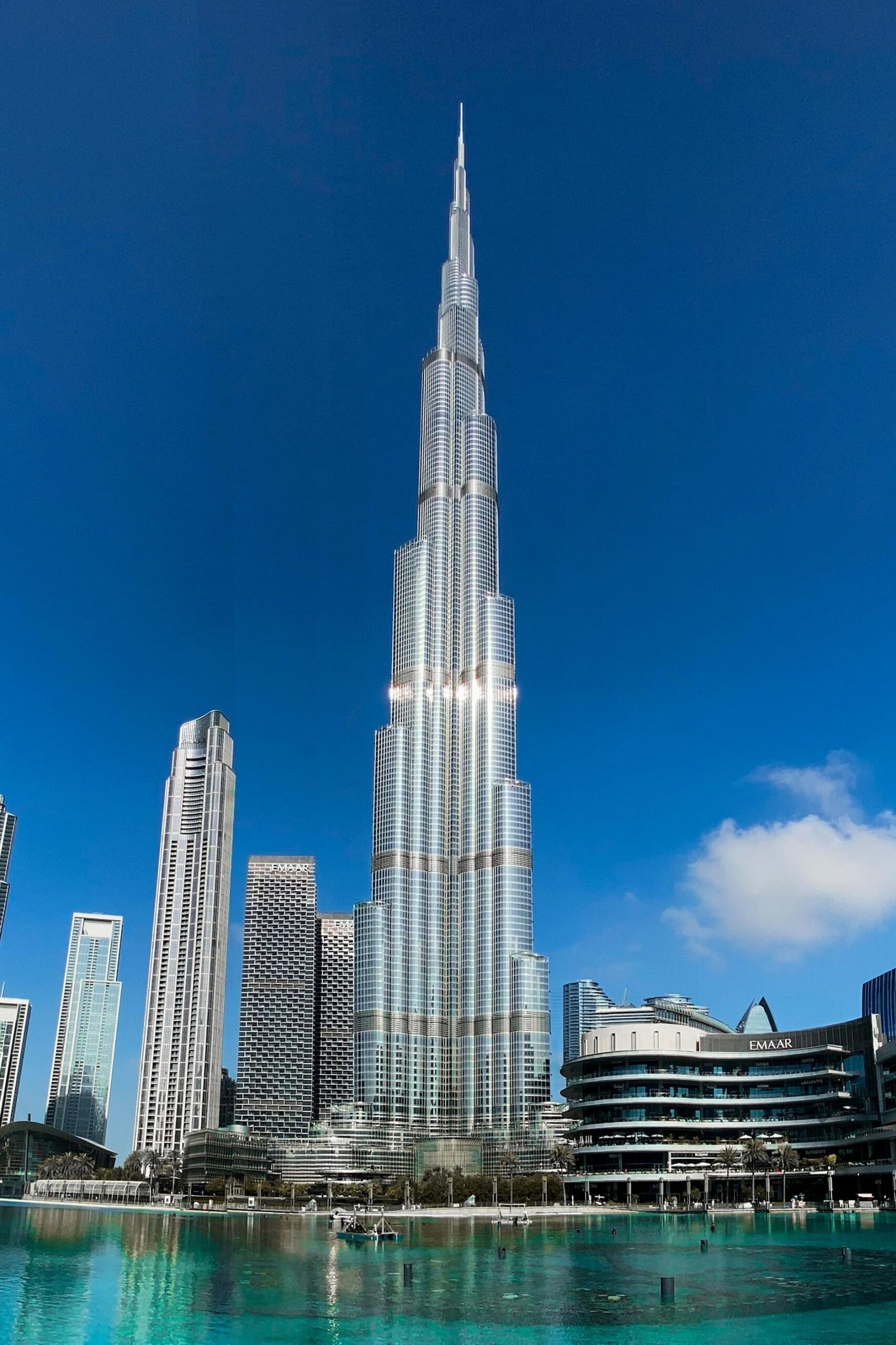About the UAE
The United Arab Emirates (UAE) has rapidly emerged as a global business hub due to its strategic location, world-class infrastructure, diverse economy, visionary governance, and investor-friendly policies. The UAE has a highly diversified economy, with a range of sectors, including tourism, logistics, finance, and technology, all contributing significantly to the country’s ongoing growth and innovation.
UAE Economic Overview

The UAE’s robust economy is underpinned by its strategic location, and progressive economic and trade policies.
The UAE’s world-leading airlines, seaports, IT, and telecommunication infrastructure has contributed to it being the preferred destination for global business and investment.
Trade and Global Partnerships
The UAE’s strategic location at the crossroads of Asia, Europe, and Africa has made it a vital trade and logistics hub. The country’s free trade agreements, including the Comprehensive Economic Partnership Agreement (CEPA) with India, further strengthens its position as a centre for global trade.
Investment Opportunities
The UAE offers a range of investment opportunities across various sectors, supported by special economic zones (SEZs), a favourable tax environment, and a strong legal framework. Foreign investors are welcomed with open arms, given the country’s robust infrastructure and business-friendly policies.
Future Outlook
Looking ahead, the UAE’s economy is poised for continued growth, underpinned by strategic initiatives, innovation, and global partnerships. The UAE remains committed to creating a sustainable, diversified economy that leverages its strategic advantages and fosters long-term prosperity.
Establishing a Business in the UAE
In the UAE, regulations relating to the establishment and conduct of business is shared at the federal- and emirate-levels. There are a multitude of options for businesses seeking to establish their operations both onshore and within the UAE’s SEZs. The vast majority of onshore business activities allow 100 percent foreign ownership, with a range of incentives offered to entrepreneurs and investors operating in cutting-edge fields.
There are a number of clear advantages to establishing a business in the UAE, including:
No restrictions on profit transfer or repatriation of capital
Low corporate tax and no income taxes
Very low, or non-existent, import duties
Competitive labor costs
A stable and secure currency
100% foreign ownership available for onshore companies in most sectors

The process of establishing a company in the UAE is a simple process. There are a range of in-person and digital options that can be undertaken in all of the UAE’s seven constituent emirates. Establishing a company typically involves identifying the location, specifying the nature of business, and paying ascribed fees for the issuance of a commercial license.
Further information about this process can be found at the UAE Ministry of Economy’s website: www.moec.gov.ae
The Seven Emirates of the UAE
The United Arab Emirates is a federation of seven emirates, with Abu Dhabi as its capital. The seven emirates are: Abu Dhabi, Ajman, Dubai, Fujairah, Ras Al Khaimah, Sharjah, and Umm Al Quwain.
Hover over the map below for links on each emirate’s respective economic or investment development body and major special economic zones (SEZs).

